Sometimes the best moments are less sport, and more feels.
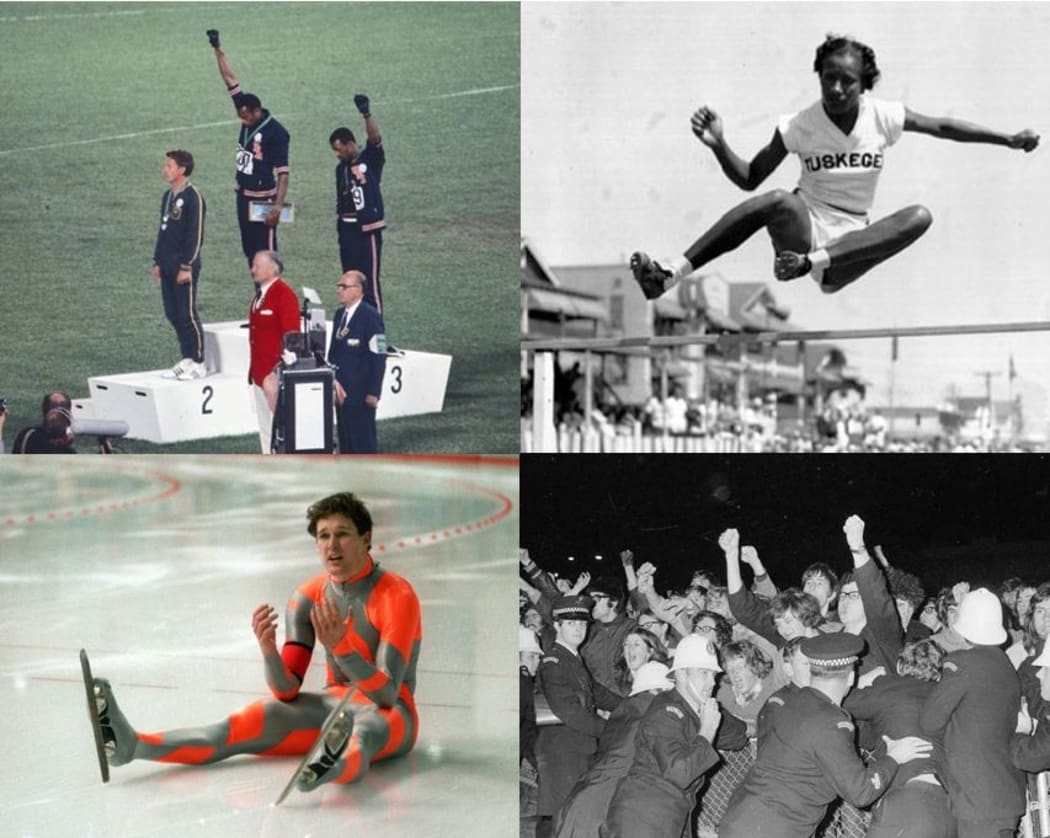
Photo: Unknown
1. Father and son
Let’s start with a real tear-jerker: the unforgettable story of British runner Derek Redmond.
Midway through his 400m sprint at the 1992 Olympics in Barcelona, Redmond felt an agonising snap in his hamstring and dropped to the ground. He got back to his feet and tried to finish the race but could only hop towards the finish line, his face twisted with desperation and pain.
Then, in a heartwrenching display, a man pushed past the staff and ran onto the track. It has his dad. Sixty-five thousand spectators got to their feet in a standing ovation, as the pair crossed the finish line.
2. The one-glove protest
In a defining moment in the history of the Olympic Games, American athletes Tommie Smith and John Carlos raised their gloved hands in protest during the medal ceremony in Mexico in 1968.
The athletes also accepted their medals for the 200m sprint in black socks, which they later said stood for black poverty in America. In a sign of solidarity, Australian sprinter and silver medalist Peter Norman wore an Olympic Project for Human Rights badge with his fellow medal-winners.
In a press conference after the event, Tommie Smith said: "If I win I am an American, not a black American. But if I did something bad then they would say 'a Negro'. We are black and we are proud of being black. Black America will understand what we did tonight."
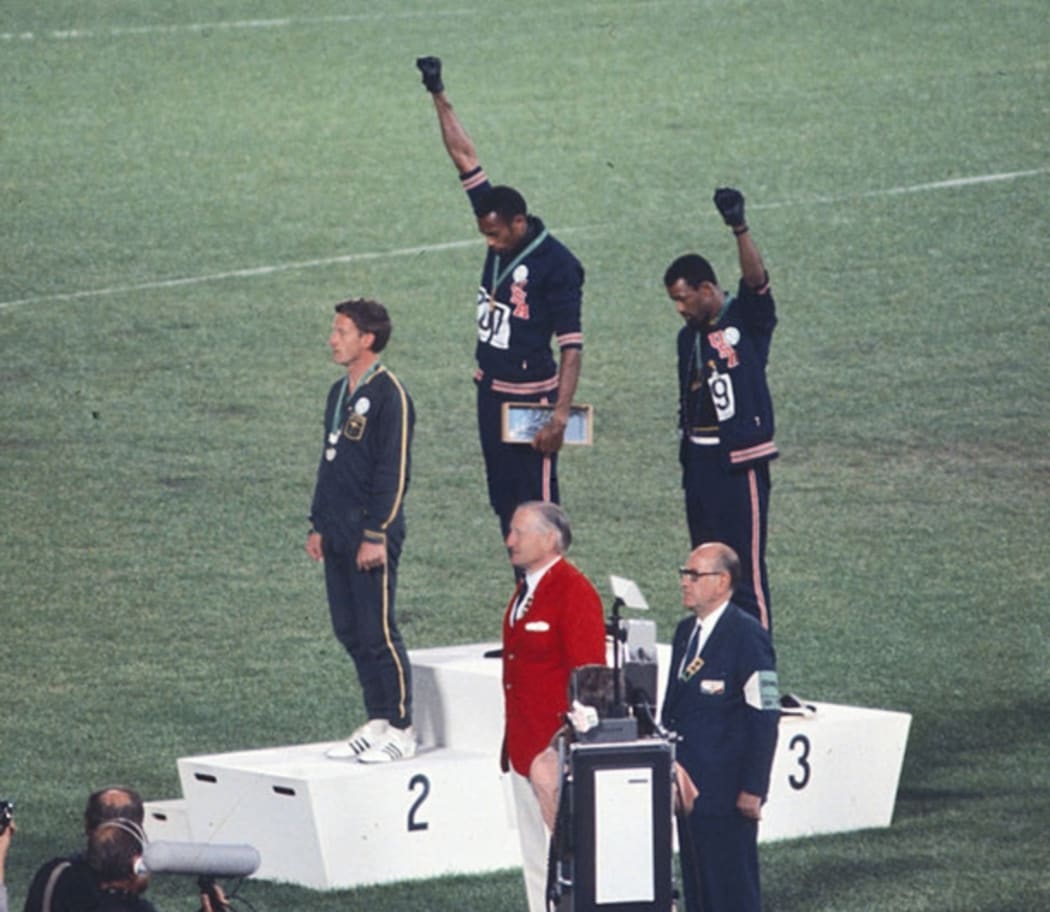
Photo: Angelo Cozzi / Wikicommoms
3. Against the odds
Competing on a world stage against the the top athletes in the world is mentally tough at the best of times, but Canadian figure skater Joannie Rochette had a monumental obstacle to overcome.
Rochette competed in front of millions in the 2010 Vancouver Olympics just two days after losing her mother to a sudden heart attack. Not only did she perform, she won the bronze medal with two strong performances, dedicating the medal to her mother.
4. Cool Runnings
This story not only inspired millions around the world, it also inspired a movie.
At the 1988 Winter Olympics in Canada, a group of four athletes from the tropical national of Jamaica shocked onlookers by competing in the bobsleigh event with little experience and borrowed sleighs.
They were the ultimate underdogs and gained the admiration of support of spectators and competitors alike. Although they did not officially finish due to crashing in one of their qualifiers, they continued to compete, most recently at the 2014 Winter Olympics in Sochi after raising over $129,000 in a crowdfunding campaign.
5. Firstbumps
Sticking with Jamaica for a moment, let’s turn to Usain Bolt, possibly the fastest human alive. But Bolt’s most inspirational moments aren't always at the finish line; sometimes they’re before he even starts running.
Bolt is the king of fist-bumps and has given out quite a number in his time. The most memorable bump came when Bolt touched fists with 17-year-old volunteer Glen Toonga before he became the first man in history to successfully defend both the 100m and 200m titles at the 2012 Summer Olympics in London.
The best part, of course, is the well-placed camera that catches the volunteer's face, almost exploding with happiness, after his fist bumping moment of glory. Glen was later quoted as saying: “I’m not going to wash for days.”
6. Gold on one leg
In the 1996 Olympics in Atlanta, the United States women's team were just a stone’s throw away from their first-ever gold.
The gold medal dreams came down to one woman; 18-year-old Kerri Strug, who needed a high score on the vault to cement the victory. Devastatingly, Strug twisted her ankle on the landing of her first attempt. She insisted on taking her second turn and executed it perfectly, landing on one leg.
She then collapsed in pain and was carried the podium to be with her teammates to receive their medals, a sight that has since become an iconic Olympic image.
7. The boycott
After the horror of the 1972 Olympic Games, where a group of terrorists killed nine Israeli athletes, many were hoping the 1976 Games would rebuild the Olympic spirit. But the games were overshadowed by the boycott of more than 20 African nations because New Zealand was participating.
Earlier that year the All Blacks had toured South Africa, where apartheid continued and despite the United Nations' calls for a sporting embargo. According to the BBC, Canada lost millions in event cancellations and seat refunds due to the boycott, which sent a strong message to the world.
In a statement following their withdrawal from the games, Kenya’s foreign minister James Osogo said: "The government and the people of Kenya hold the view that principles are more precious than medals."
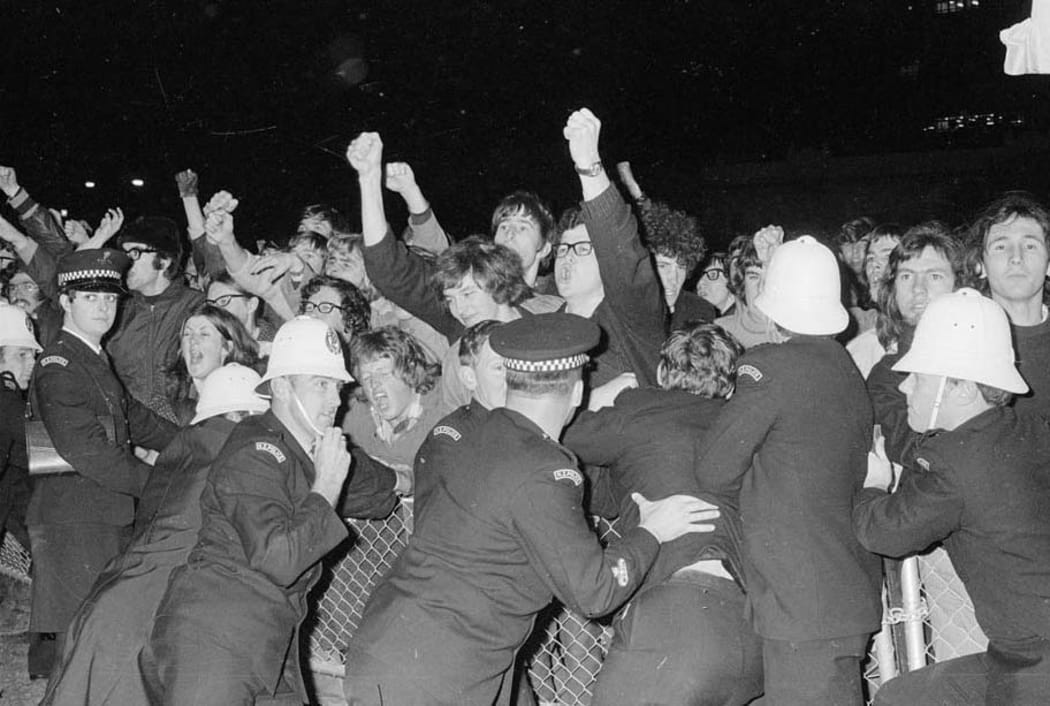
Anti-apartheid demonstrators are held back by police in 1970 Photo: Alexander Turnbull Library
8. Brief unity
In a simple yet profoundly powerful act, North and South Korea marched together for the first time in the Sydney Olympic Game opening ceremony in 2000.
Rather than carry their own national flags, the North and South Korean teams - who also wore identical uniforms - waved a unification flag. Chung Un Soon, a female basketball player from South Korea, and Park Chong Chul, a male judo coach from the North, led the delegation.
The two Koreas, which split following civil war in the early 1950s, have not yet mended their relationship. But the act of unity at the opening ceremony remains an inspirational highlight in the Olympic history books.
9. First in History
Alice Coachman made history at the 1948 Olympics in London when she set a new world record in high jump and became the first black woman to win an Olympic gold medal.
As a young girl, Coachman - who came from a poor family in the segregated South - would run and jump barefoot, using ropes and sticks for makeshift high jumps. She was not allowed to train at athletic fields with whites.
“I made a difference among the blacks, being one of the leaders,” she told The New York Times in 1996. “If I had gone to the Games and failed, there wouldn’t be anyone to follow in my footsteps. It encouraged the rest of the women to work harder and fight harder.”
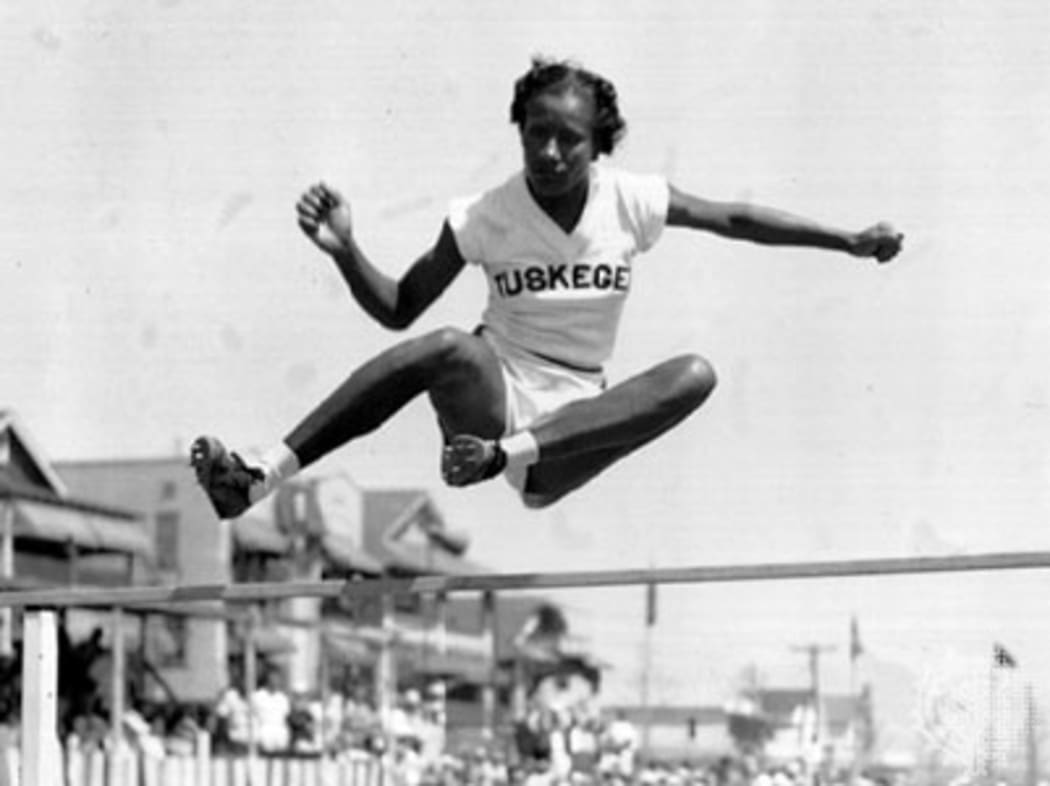
Alice Coachman Photo: blackpast.org
10. For Jane
In the words of Aaliyah: "if at first you don't succeed, dust yourself off and try again." American speed skater Dan Jansen did just that.
At the 1988 Winter Olympics in Calgary, moments before the start of the his race metres, Jansen was told that his sister Jane had died. He wanted to win for Jane, but fell during the race and left empty-handed. In 1992 in Albertville, France, Jansen tried again but he stumbled and won nothing.
The 1994 games in Norway were his last chance. He stumbled again in the 500, and most thought he was done for. But in the 1000m, after year of persistence, Jansen won gold and also set a world record.
As he took his victory lap, he held his baby daughter in his arms. She was named Jane.
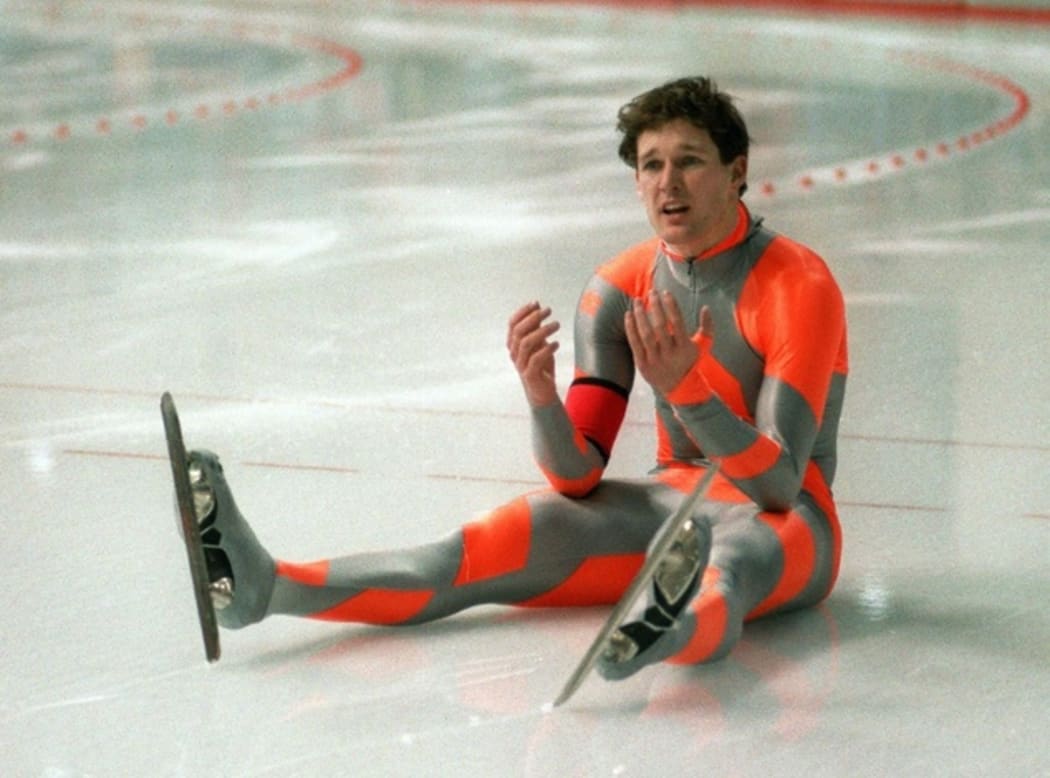
Dan Jansen at the 1988 Winter Olympics in Calgary Photo: AFP

